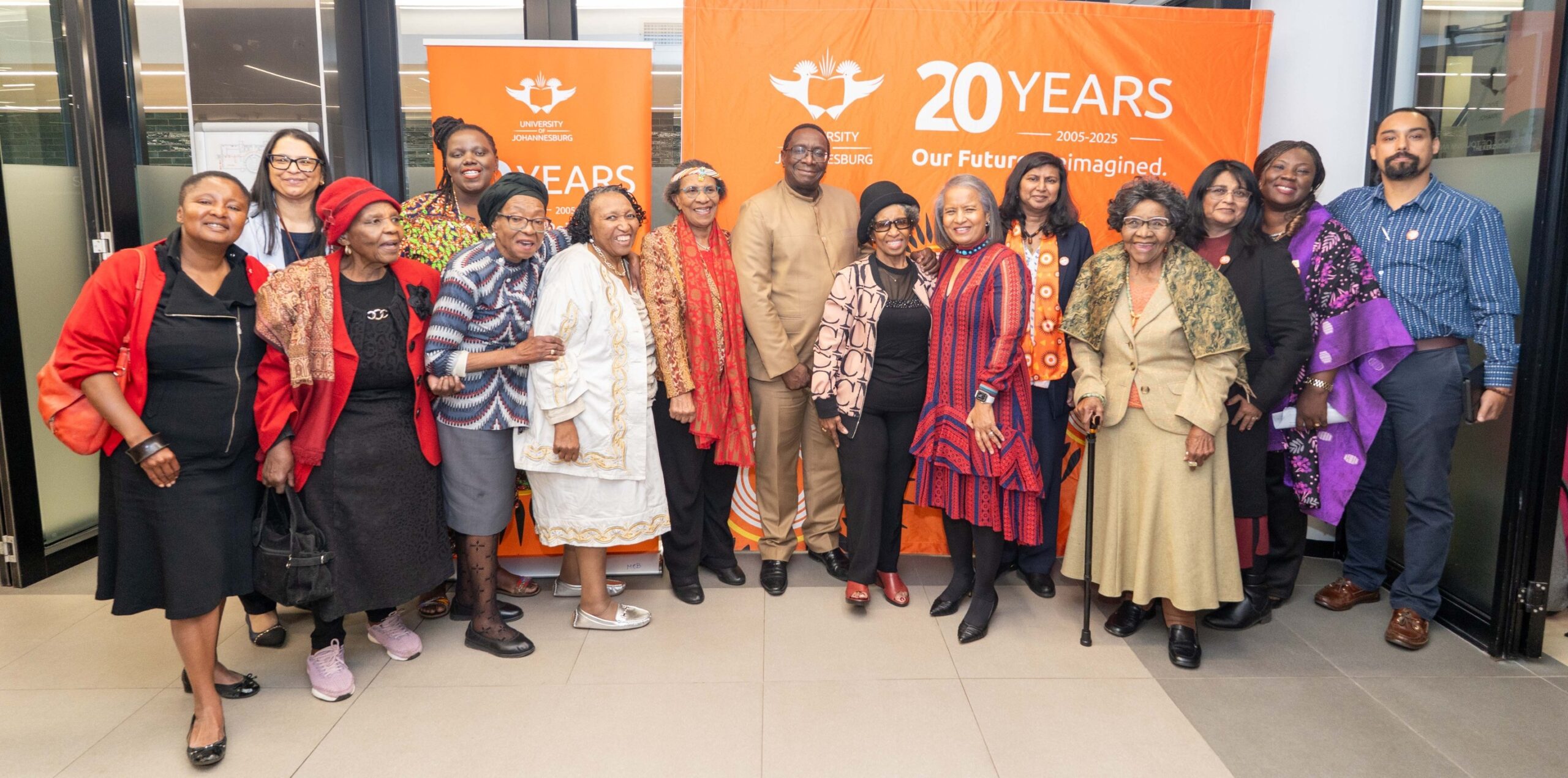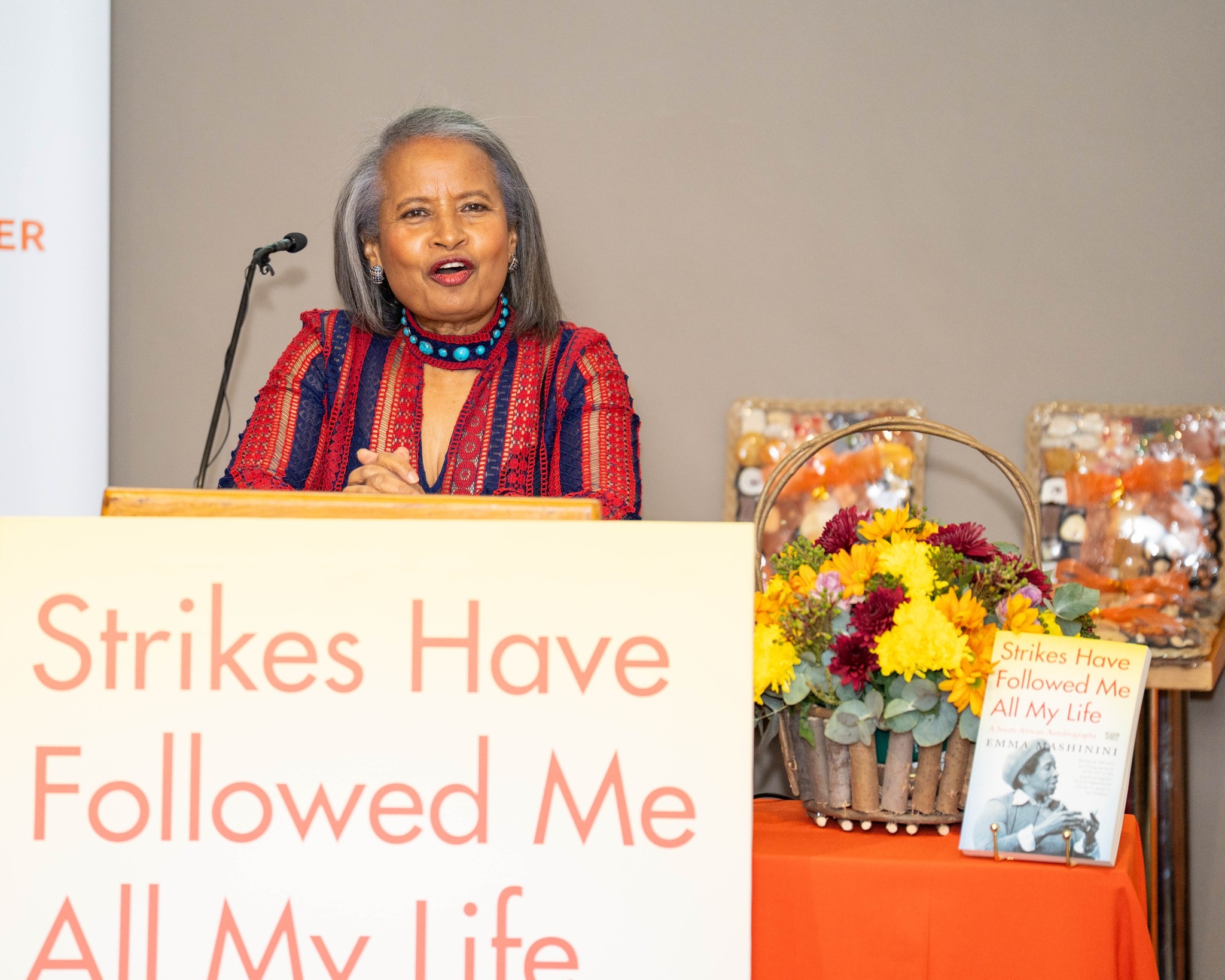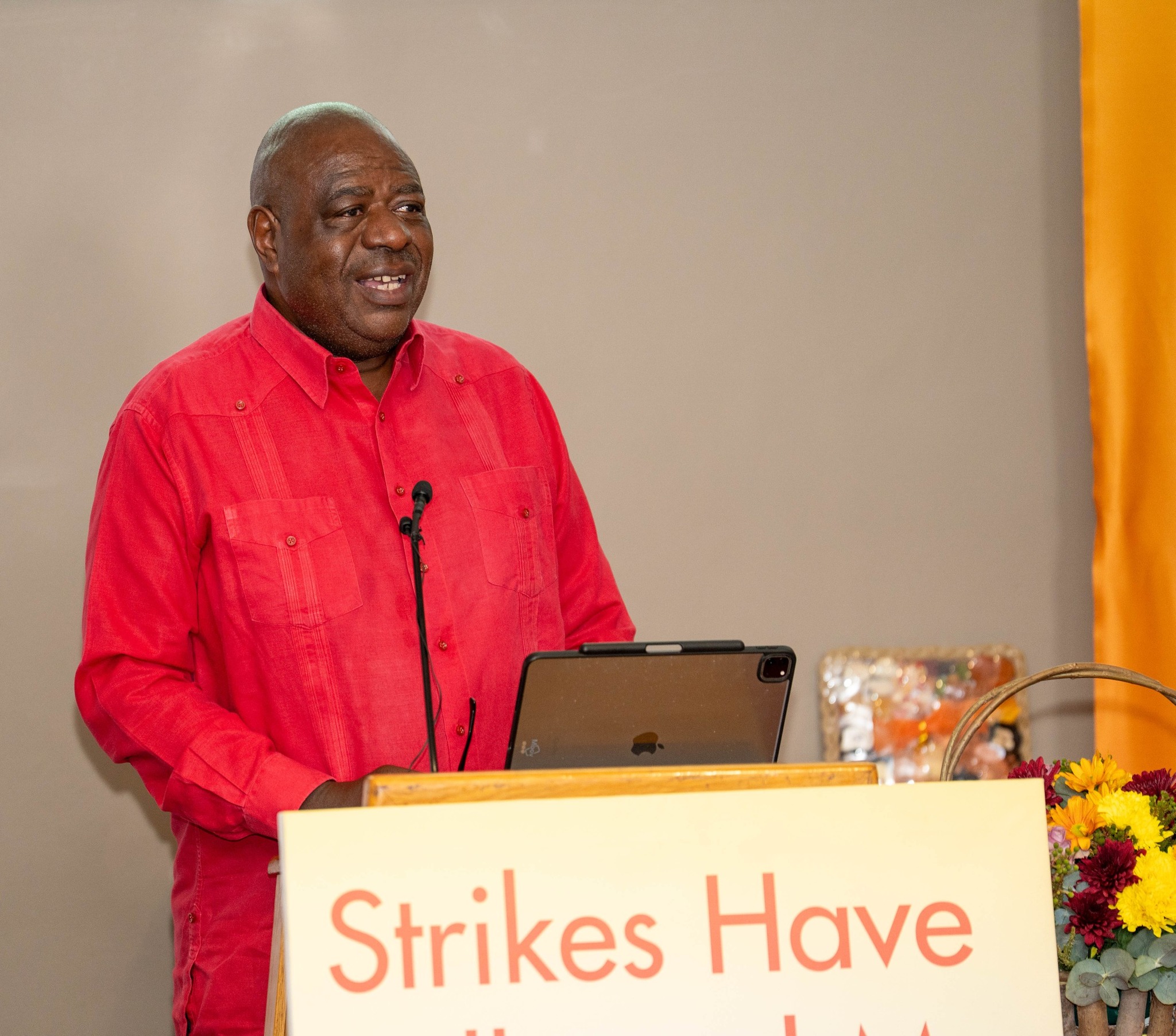‘A tiny giant’. This is how Emma Mashinini, a revered trade unionist, freedom fighter, and human rights advocate was described by those closest to her.

Mashinini was honoured by the Centre for the Study of Race, Gender and Class (CSRGC) at the University of Johannesburg (UJ) who hosted a public lecture in her honour. Named the Emma Mashinini Public Lecture, the lecture series is organised in partnership with the Emma Mashinini Foundation and the Faculty of Humanities at UJ.
The lecture held at the Ubuntu Chambers at the University’s Auckland Park Kingsway campus was delivered by former minister of Public Works, Geraldine Fraser-Moleketi, with former trade unionist and former premier of Gauteng Mbhazima Shilowa and former chairperson of the Independent Electoral Commission (IEC), social activist and writer Dr Brigalia Bam being discussants.
Due to serendipitous delays in the programme, educator, activist, feminist and community organizer Joyce Seroke was given the opportunity to share personal annecdotes from the friendship she shared with Emma.
In attendance at the lecture were trade union leaders, members of the clergy, friends, family, comrades and supporters of Mashinini. Some of these includes Deputy Chief Just of the Constitutional court, Justice Dunstan Mlambo, Bishop Malusi Mpumlwana former general secretary of South African Council of Churches (SACC), South African Federation of Trade Unions (SAFTU) leader Zwelinzima Vavi, lay canon of the Anglican Church Thandi Chaane and Mashinini’s family, represented by her daughter, Molly Mageza.
Director of the CSRGC, Professor Tinuade Ojo, who acted as MC for the evening said in her opening remarks that the public lecture presents a space for critical reflection and dialogue of inspiration.
“As an institution, we came [to use the lecture] to foster partnerships, research and to challenge inequalities that do not promote social transformation. The lecture aims to work with the vision of the institution and presents an opportunity to explore and advance the principles of leadership, courage and social responsibility that Emma Mashinini embodied.”
In her remarks about the kind of person Mashinini was, Seroke said her [Mashinini’s] dedication to justice was powerful.
“Her dedication to justice was personal. Tonight’s lecture reminds us that Emma’s work isn’t finished. Gender equity, workers rights and transformative leadership remain pressing challenges. If we truly want to honour her, we must continue those struggles with the same conviction that she carried.”

In her keynote speech address, Fraser Moleketi took the audience through a journey of Emma’s life. From her formative years in Soweto, to her evolution from submissive housewife to trade unionist. She highlighted the various battles Mashinini waged, how deeply personal the political was to her,and how her faith played an equally important role. She ended her address with a call to us all to have the audacity of Mashinini.
“Emma Mashinini was audacious and we, too, must be bold and unwavering in our fight for liberation for all people. Transformative leadership is not necessarily about individual leaders but, instead, about what those leaders and their communities achieved in their broader efforts towards justice, equality, and freedom. We may be honouring Emma Mashinini today but let us also commit to supporting the activists and community leaders of tomorrow.”

Shilowa zoned in on the trade unionist aspect of Emma’s life beginning with a sobering thought; that for the generation of Mashinini, the enemy was clear. In today’s world, not so much.
“Unlike mme Mashinini and her comrades who knew who the enemy was: the regime, employers and the capitalist system, the current trade union leaders have to navigate working with a democratically elected government and business to respond to today’s challenges of low economic growth, high unemployment, poverty and inequality and bringing to fruition the rights enshrined in the constitution.Difficult to pinpoint the enemy even in class terms.I do not envy the position and the challenges that today’s trade union leaders face.”
He reflected on Mashinini being one of the ‘rarest breeds’ of trade union leaders, who took the union’s slogan as a call to action. He added that key among the lessons we should learn from Mashinini’s life, is ethical leadership.
“I couldn’t resist the temptation to say to all of us that amongst the things we should learn from her is ethical leadership, revolutionary morality, integrity and knowing when to exit the stage. Our country being amongst the most unequal society, wealth still reflecting apartheid patterns, we need to commit in her honour to be soldiers to build an inclusive society. We should not rest until our country is truly non-racial, non-sexist, democratic and united. We should not rest until we can walk safely in our streets without the fear of crime. But above all we should not rest until our government changes course and implement policies that prioritise economic growth, job creation, a real living wage especially for those in precarious jobs and sectors and to reduce poverty, hunger and inequality.”
The lecture was punctuated by an atmosphere of nostalgia, joy and defiance that can only be among activists and community organisers. The Emma Mashinini Memorial Public lecture will be hosted by the CSRGC over a three-year period.
Watch the full lecture here: https://www.facebook.com/share/v/1UYyuV5Sps/



